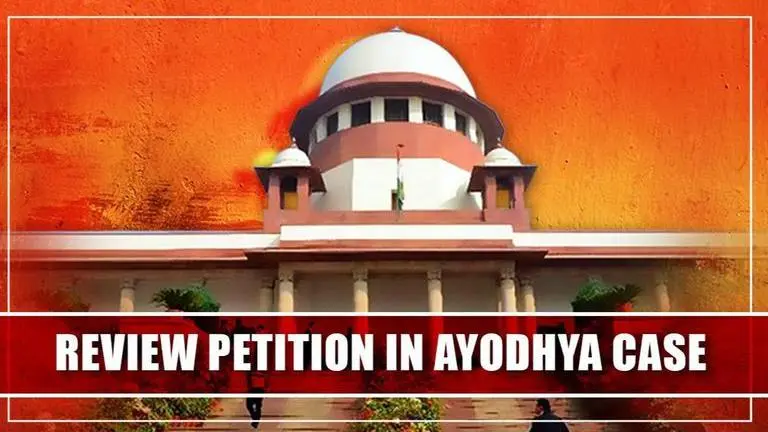Updated 9 December 2019 at 17:36 IST
Ayodhya: 40 academics & activists file review petition through advocate Prashant Bhushan
A month after in the Ayodhya case verdict by the Supreme Court now, 40 academics and activists have filed a review petition through advocate Prashant Bhushan.
- India News
- 3 min read

A month after in the Ayodhya case verdict by the Supreme Court now, 40 academics and activists have filed a review petition through advocate Prashant Bhushan. The petitioners include-- Irfan Habib, Harsh Mander, Farah Naqvi, Nandini Sundar, Shabnam Hashmi, John Dayal, and Jayati Ghosh. Six more litigants are set to file review petitions against the Supreme court verdict in the Ayodhya case, an AIMPLB office-bearer said on December 5 in Lucknow. The Jamiat Ulema-e-Hind has already filed a review petition.
A week after the Supreme Court's verdict, the Centre on November 11, reportedly initiated the process of constituting the trust, that will construct and run the Ram temple in Ayodhya. The Home Ministry officials are sorting out the technicalities to ensure the implementation of the top court's order. The Central government is likely to consult legal experts for finalising the structure of the trust. This process has to be completed within the deadline of three months as mandated by the Supreme Court.
Ayodhya Verdict
There has been a longstanding legal dispute about the ownership of land in Ayodhya, which is considered as the birthplace of Lord Ram. According to the November 9 verdict, the Supreme Court had said the entire 2.77 acres of disputed land should be handed over to the deity Ram Lalla, who was one of the three litigants. The Allahabad High Court gave its judgment on this disputed land in 2010, partitioning it among the Sunni Waqf Board, the Nirmohi Akhara and Ram Lalla. Thereafter, 14 appeals were filed in the SC against this judgment of the Allahabad High Court.
The Constitution bench of the Supreme Court in its Ayodhya verdict stated, “The Central Government shall, within a period of three months from the date of this judgment, formulate a scheme pursuant to the powers vested in it under Sections 6 and 7 of the Acquisition of Certain Area at Ayodhya Act 1993. The scheme shall envisage the setting up of trust with a Board of Trustees or any other appropriate body under Section 6. The scheme to be framed by the Central Government shall make necessary provisions in regard to the functioning of the trust or body including on matters relating to the management of the trust, the powers of the trustees including the construction of a temple and all necessary, incidental and supplemental matters.”
Advertisement
Published By : Digital Desk
Published On: 9 December 2019 at 17:22 IST
